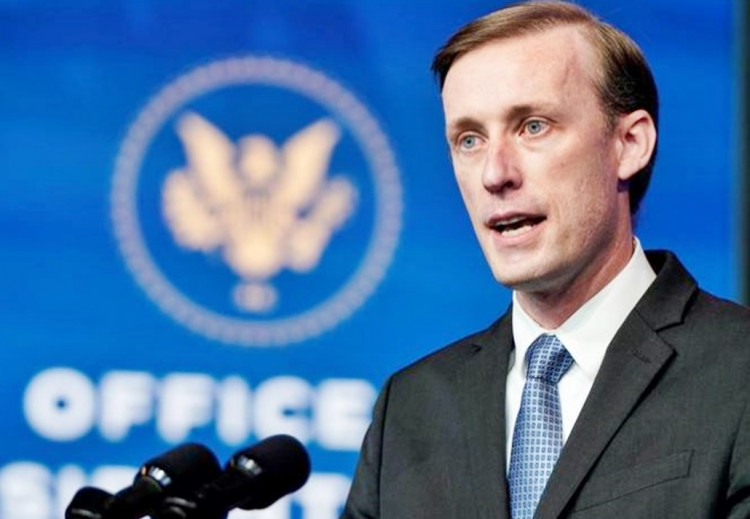The United States is threatening to inflict unspecified "costs," or punishments, on China for the latter's oppression of Muslim Uyghurs, and for cracking down hard on democracy advocates in Hong Kong and Taiwan.
The very public warning was made Friday by Jake Sullivan, the Biden administration's new National Security Adviser and a long-time opponent of communist China.
In a talk at the United States Institute of Peace, Sullivan said the U.S. has to be "prepared to act, as well to impose costs, for what China is doing in Xinjiang, what it's doing in Hong Kong, for the bellicosity and threats it is projecting towards Taiwan."
He said China is at the top of the Biden administration's agenda as Washington seeks to build a consensus for action against China with the country's European allies.
Sullivan's tough talk harkens back to a similar stand by the Trump administration, which accused China of genocide against Muslim Uyghurs, the dominant ethnic group in the Xinjiang Uyghur Autonomous Region.
Sullivan proposed four steps the U.S. can take to counter China's geopolitical challenges. The first step is to recognize China keeps trying to convince the world its authoritarian growth model is better than the liberal American model.
The U.S. must "refurbish the foundations of (its) democracy" by tackling social problems such as racial and economic inequality to defuse this argument.
The second step will be for the U.S. to advance its vision for a free, prosperous, and equitable society "in lockstep with its democratic allies and partners." The "chorus of voices" comprising the U.S. and its democratic allies collectively represent more than half the world's economy, a powerful edge in standing up to Chinese economic and political pressure.
Step three will see U.S. increase public investment in emerging technologies such as artificial intelligence (AI), quantum computing, biotechnology, and clean energy. Sullivan said these investments are needed because the competition between the U.S. and China will be won by the country with a decisive technological advantage.
Sullivan said the fourth step is for the U.S. to speak with clarity and consistency when it comes to China. This step includes "being prepared to act as well as to impose costs for what China is doing in Xinjiang, what it's doing in Hong Kong, and for the bellicosity and threats that it is projecting towards Taiwan," said Sullivan.






